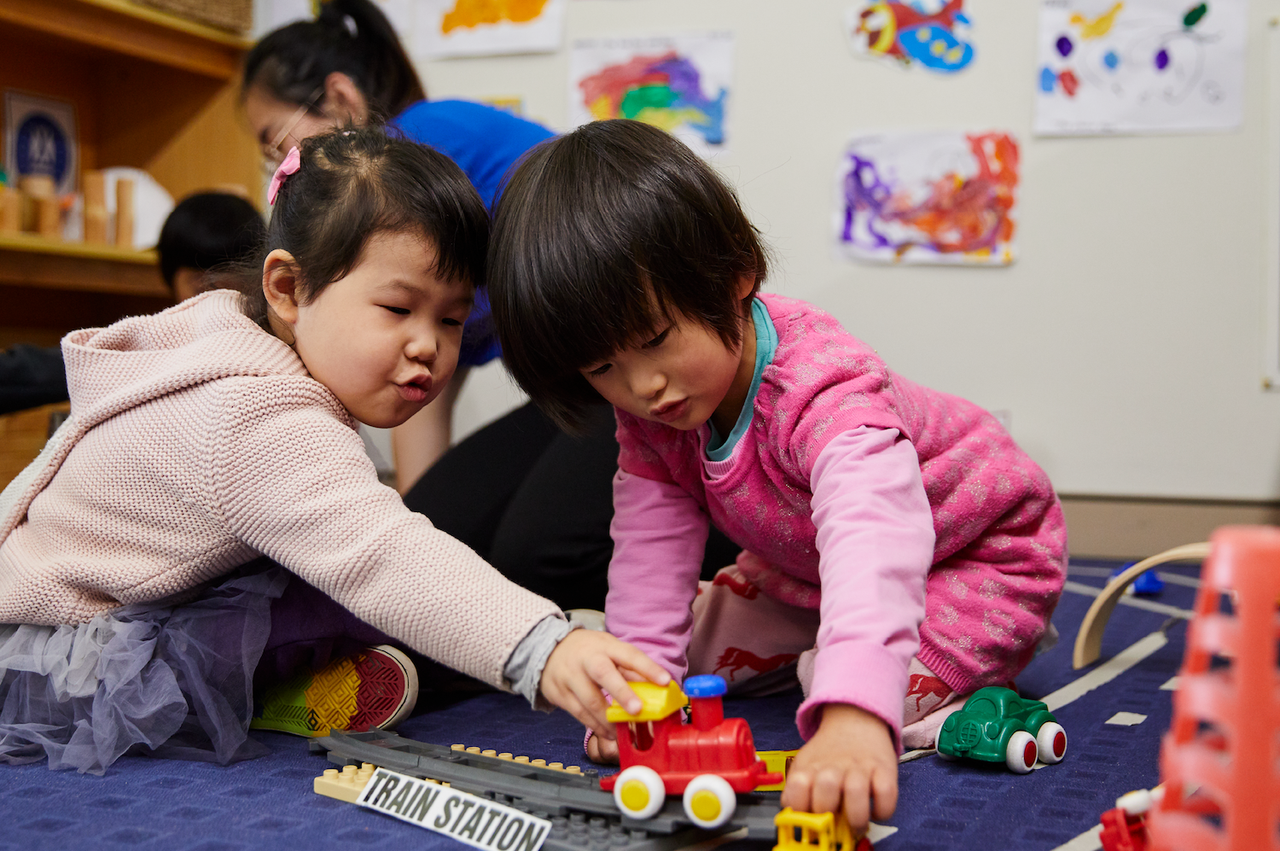
There is plenty of literature written on the value of routines for children. Parenting writer and speaker Maggie Dent promotes 'simple routines' to help children develop organisational skills and reduce stress as they know what is going to happen.
Toddle spoke with Nancy Franceschina, the Centre Manager from Kindalin Early Childhood Learning Centre in West Pennant Hills in Sydney. We discussed what child care centres can do to help teach children the value of routine, including their transitions between activities, breaks for meals and snacks, and the importance of rest.
‘Each and every part of our daily routine at child care has purpose and benefits to the children,’ shares Nancy. ‘From outdoor play and book sharing, to simply washing their hands before mealtimes and packing up toys.
It provides the children with consistency, and therefore a sense of security and stability, giving them a comfortable environment to explore and learn.’
'Routines and habits help the brain make less decisions, which means it is less stressed – so set up clear routines around mealtimes, bath times, bedtimes and getting ready in the morning.' - Maggie Dent
What are transitions?
‘Transitions are simply actions and routines put in place when changing from one area or activity to another,’ shares Nancy.
‘Transitions take place at different times throughout the day and for different reasons. They can sometimes be minor such as washing hands and sometimes be major such as changing rooms.’
Why are transitions important?
‘Times of transition throughout the day, mealtimes and rest time are minor parts of the day but can still help both you and your child when kept a part of a routine,’ she explains.
You might find that when your routine changes (such as during COVID lockdown) your child’s behaviour changes too. This is where it’s important to keep the dialogue open to support your child.
‘To support your child in the transition of returning back to normal routine, you could start discussing with them about returning to child care,’ shares Nancy.
‘Open your child care centre’s app and show them photos of the adventures posted on there, talk to them about their friends and educators, and keep in mind it will be very normal and common for your child to take time to resettle back into the child care environment.’
Mealtimes at child care
Kindalin’s philosophy for mealtime is that it is another great opportunity for learning and engagement.
‘Kindalin has recently introduced progressive mealtimes for some of their meals, where the children are facilitated in further developing their autonomy and confidence by having choice in when they would like to eat and what they will eat,’ shares Nancy.
During mealtimes, Educators are intentional in their discussions, questioning and decisions. This promotes children’s language development when engaging in discussions and supporting their prosocial skills such as waiting their turn to talk or for the fruit plate to be passed to them.
‘Educators also use this time to provide health and hygiene, ensuring children wash their hands before and after, and engaging in discussions about healthy foods.’
Mealtimes at home
‘At home you can do the same by implementing a relaxed and engaging mealtime, giving your child some choices, talking to them about their day or what they're eating and promoting healthy habits,’ says Nancy.
Rest at child care
Your child would be familiar with having rest time at child care in the afternoon. ‘After a big day of exploring, dancing, playing and eating; a child's energy levels are lower, they are less focused and more likely to have behavioural challenges when they become depleted,’ explains Nancy.
‘Dedicating time in the day for your child to rest gives them the chance to regain energy and remain focused and alert for the remainder of the day when they head home.’
Rest at home
‘Although their routine may be different at home, including rest time for your child in the afternoon is beneficial to both you and your child,’ says Nancy.
‘This fantastic article by Maggie Dent discusses becoming an energy detective for your child, understanding their energy levels, temperament and energy, and great suggestions for filling your child's energy cup,’ she shares.
Find out more about Kindalin Early Childhood Learning Centre in West Pennant Hills, view photos and videos, read reviews, explore the programs and menu - or book a tour!
If you need child care for your little one, Toddle can help. Just enter your postcode in the search box at the top of the page.